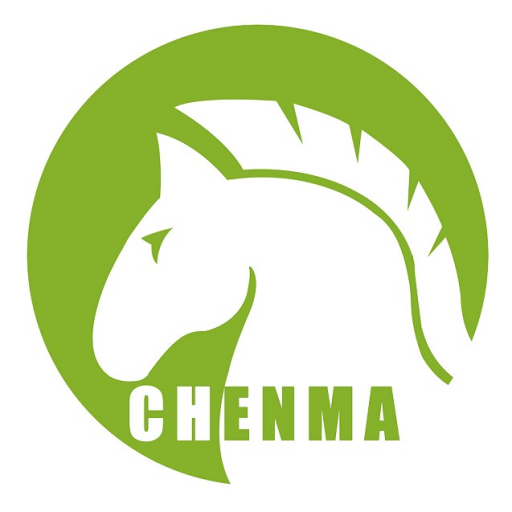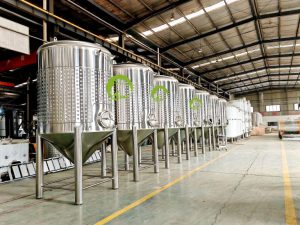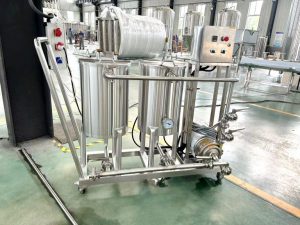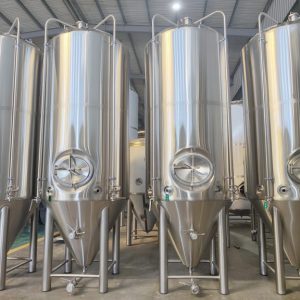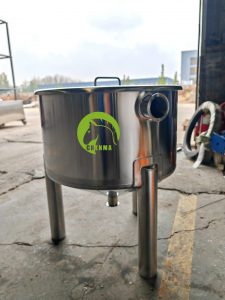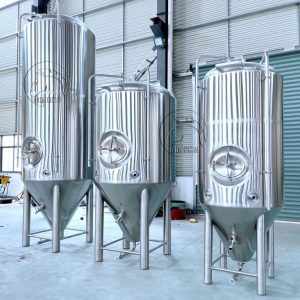
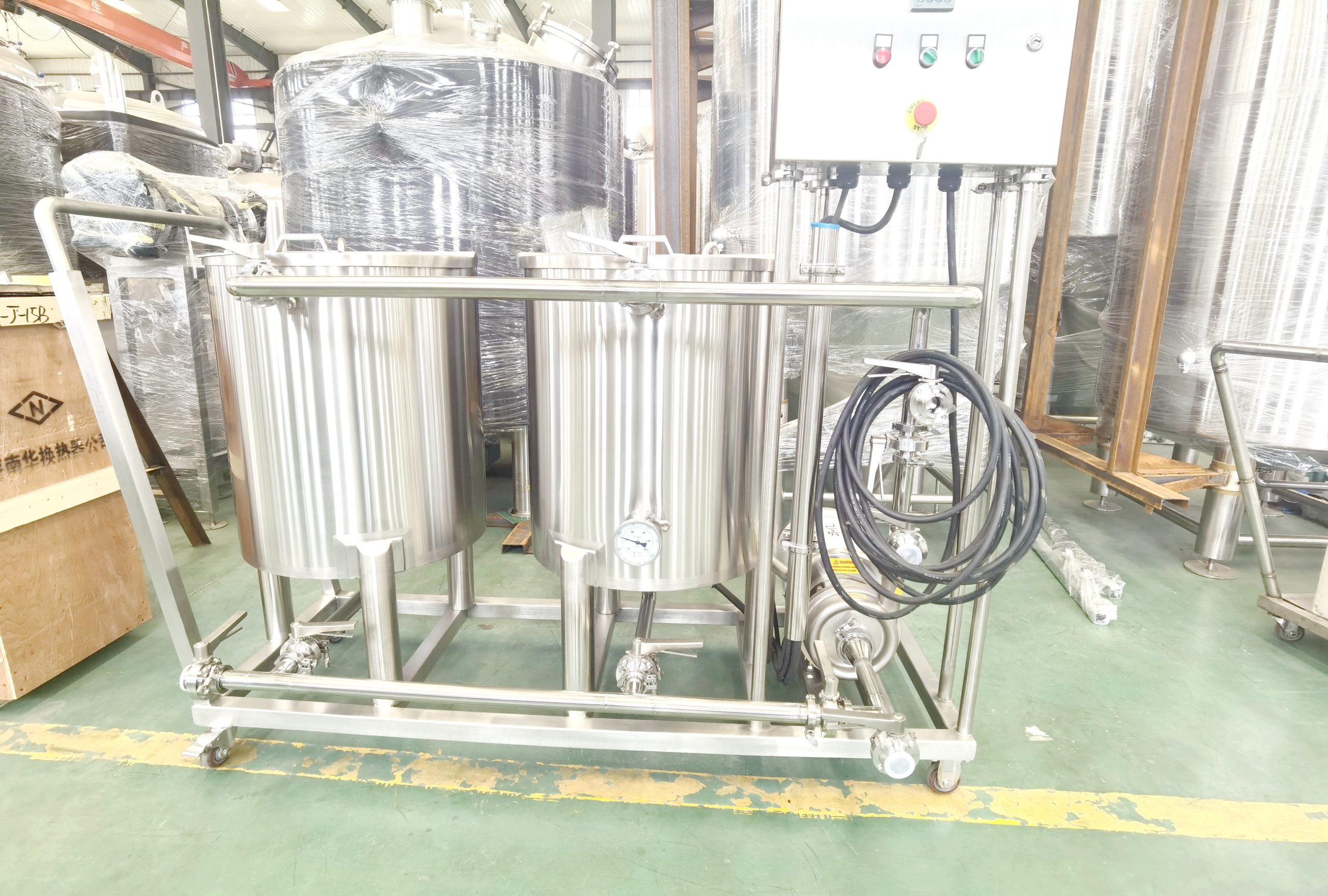
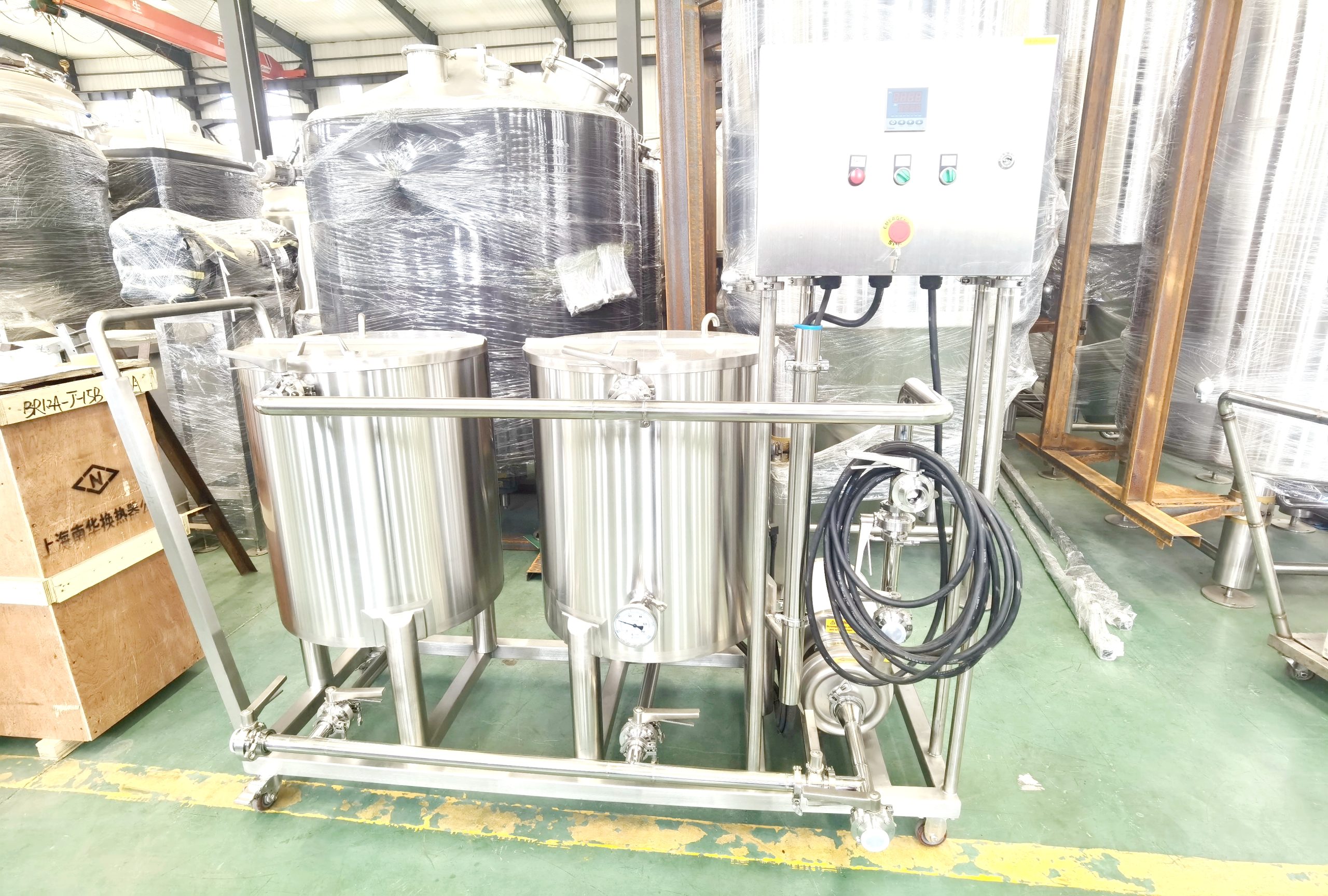
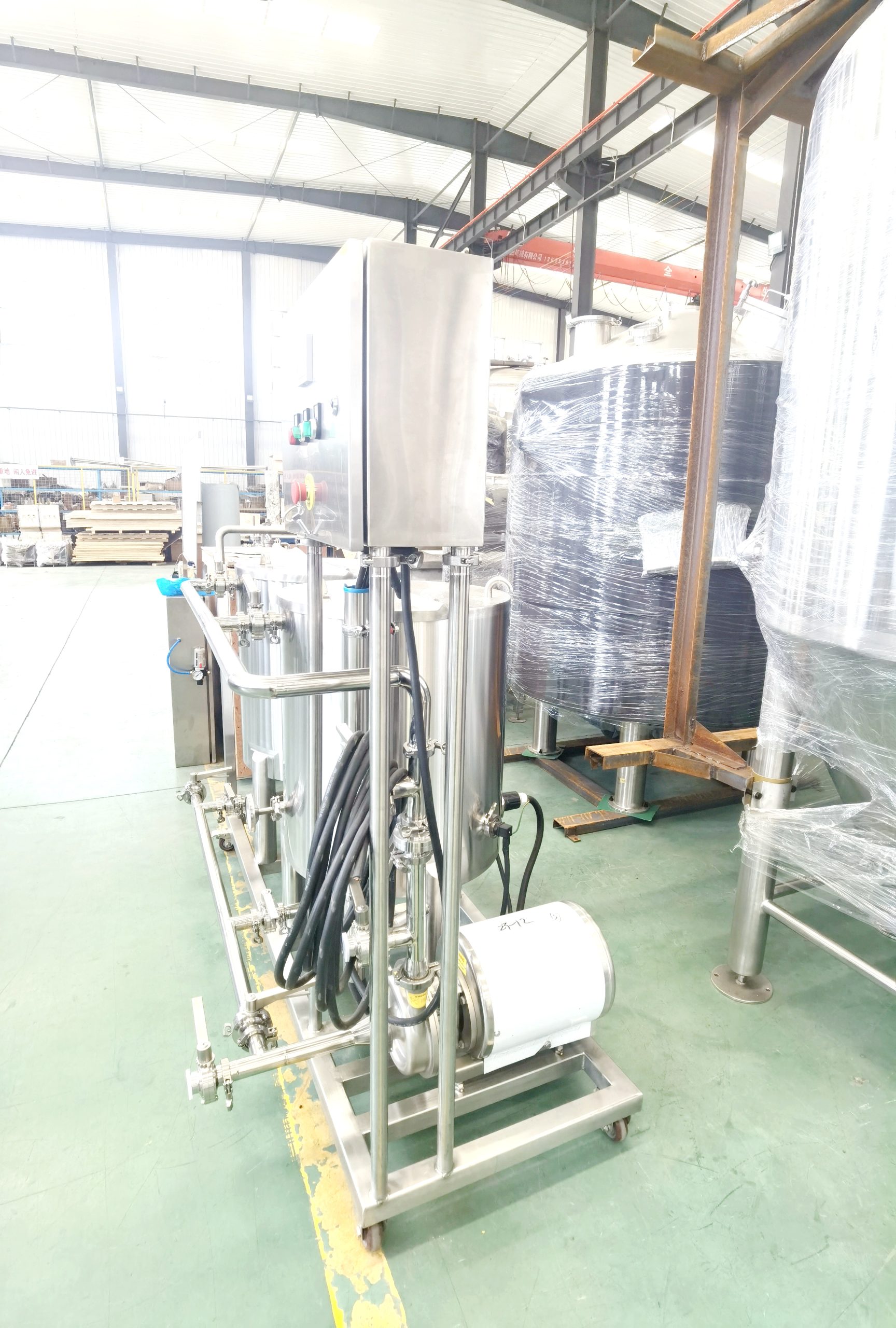
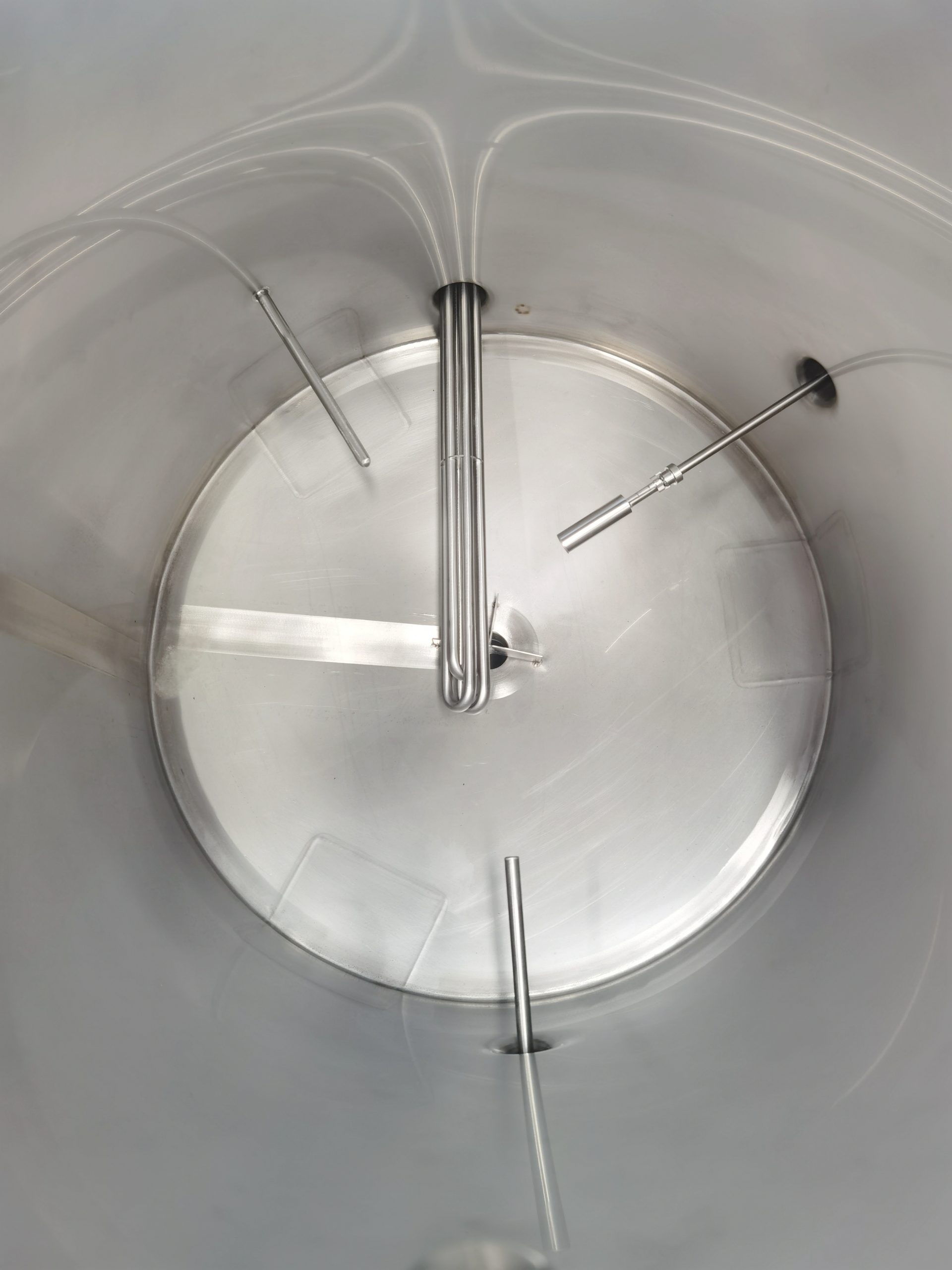
100L Mobile CIP Cleaning System
100L Mobile CIP (Clean-in-Place) Cleaning System is a versatile, portable cleaning unit used for internal cleaning of industrial equipment such as tanks, pipes, heat exchangers, and other machinery without requiring disassembly. CIP systems are widely used in industries like food and beverage, pharmaceuticals, dairy, and cosmetics, where hygiene and cleanliness are critical.
Product details
100L Mobile CIP Cleaning System
100L Mobile CIP Cleaning System is a compact, portable cleaning unit designed to clean and sanitize small to medium-sized industrial equipment. With a 100liter tank capacity, this system is particularly suited for smaller operations or localized cleaning tasks within industries like food processing, beverage production, pharmaceuticals, and cosmetics.
1.Specification for 100L Mobile CIP Cleaning System:
1)100L mobile CIP cleaning system includes one sterilize tank, one alkali tank(with electric heating), washing pump, CIP cart, control panel and pipeline and valves;
2)Mobile systems;
3)Electric heating for alkali tank;
4)CIP control systems(it will be control the temperature for alkali tank, and control the washing pump’s on/off and control speed for the washing pump;
5)SUS304 construction;
6)Removable lids;
7)Thermowell;
8)Low-level sensors;
9)Variable speed centrifugal pump;
2.Cleaning Process with 100L Mobile CIP Cleaning System:
1). Pre-Rinse (Water Rinse)
- Purpose: To remove loose debris and residue from the internal surfaces of the equipment.
- Process:
- Fresh water is circulated from the 100L Mobile CIP systemthrough the equipment to flush out large particles and any easily removed material.
- Water is pumped through pipes, tanks, or other equipment at a moderate flow rate.
- The pre-rinse usually lasts around 5–10 minutes depending on the level of soiling.
- End Goal: Prepares the equipment for effective chemical cleaning by removing bulk waste.
2). Detergent Cleaning (Alkaline or Acidic)
- Purpose: To remove fats, oils, proteins, or mineral deposits that water alone can’t clean.
- Process:
- A cleaning solution, typically an alkaline detergent(for organic matter like fats and proteins) or acidic detergent (for mineral deposits), is heated (if necessary) to the appropriate temperature (e.g., 60–85°C for fats and proteins).
- The cleaning agent is circulated through the system for 10–20 minutes, depending on the type and severity of contamination.
- The mobile CIP unit ensures consistent flow and temperature for optimal cleaning.
- Depending on the cleaning solution used, the system might recirculate the chemical to ensure full coverage or be designed as a single-pass system.
- End Goal: Complete breakdown and removal of organic and inorganic contaminants.
3).Intermediate Rinse
- Purpose: To remove residual cleaning chemicals and dissolved contaminants.
- Process:
- Fresh water is again circulated through the system to flush out any remaining detergent and residues.
- The rinse lasts for about 5–10 minutes, ensuring no chemicals remain before the final sanitation step.
- End Goal: Clean the system of any cleaning agent, leaving only the water-soluble materials behind.
4).Sanitation/Disinfection
- Purpose: To kill any remaining microorganisms or bacteria, ensuring equipment is sanitized and safe for the next production batch.
- Process:
- A sanitizing agent, such as hot water, chlorine, peracetic acid, or quaternary ammonium compounds, is circulated through the system.
- The sanitizing agent is usually kept at a high temperature (if using hot water) or circulated for a specified amount of time (typically 10–15 minutes) to ensure microbial kill.
- In some cases, no-rinse sanitizers are used, meaning no further rinsing is required after this step.
- End Goal: Complete microbial disinfection, making the equipment safe for food, pharmaceutical, or cosmetic production.
5).Final Rinse (Optional, if needed)
- Purpose: To remove residual sanitizers, especially if non-rinse sanitizers weren’t used.
- Process:
- Fresh water is circulated one last time to ensure any remaining chemicals or sanitizers are flushed from the system.
- This rinse typically lasts for 5–10 minutes, depending on system complexity.
- End Goal: Ensures the equipment is ready for the next production cycle.
6).Drain and Dry (Optional)
- Purpose: To remove any excess water from the equipment to prevent contamination or dilution of the next batch.
- Process:
- The system is drained thoroughly.
- Some systems may use compressed air or drying agents to blow out remaining water in pipes and tanks.
- End Goal: Ensure equipment is clean, dry, and ready for use.
Example of Complete Cleaning Cycle for 100L Mobile Cleaning System:
- Pre-rinse (5 minutes)– Removes large debris.
- Alkaline detergent circulation (15 minutes)– Breaks down fats and proteins.
- Intermediate rinse (5 minutes)– Flushes out detergent.
- Sanitization (10 minutes)– Destroys bacteria and microorganisms.
- Final rinse (if needed, 5 minutes)– Clears out remaining sanitizer.
3.Advantages for using the 100L Mobile CIP Cleaning System:
- Compact and Portable: Perfect for smaller operations or limited-space facilities.
- Efficient Cleaning: Reduces manual labor and ensures consistent, thorough cleaning.
- Customizable: Can be tailored to specific cleaning needs (type of detergents, temperature, and flow rate).
- Cost-Effective: Suitable for small-scale production, offering efficient cleaning without the expense of larger systems.
The 100L Mobile CIP cleaning System is ideal for maintaining high hygiene standards in industries where equipment cleanliness directly impacts product quality and safety.
